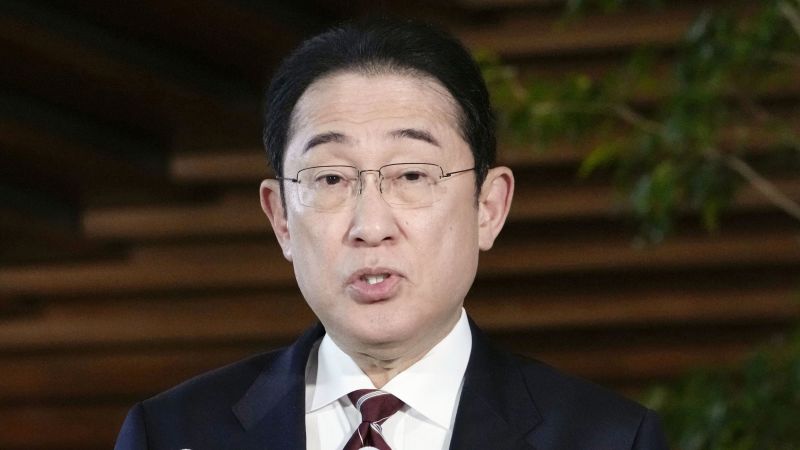Tokyo/Hong Kong
CNN
—
Once seen as America’s greatest economic challenger, Japan is now looking to team up with the world’s biggest economy by appealing directly to US executives to invest in the Asian country’s emerging tech sectors including artificial intelligence (AI), semiconductors and clean energy.
Speaking in Washington at a lunch with American CEOs, Prime Minister Fumio Kishida said Japan welcomes American collaboration in “critical and emerging technology” and assured them that any investment would flow both ways.
“The economic growth our country obtains through your investments shall serve as the funding source of further investments into the United States by Japanese entities,” he said Tuesday.
Kishida is in the US ahead of a Wednesday summit with President Joe Biden expected to focus on defense and economic ties.
Last year, Japanese foreign direct investment to the US exceeded $750 billion, Kishida said, making Japan the biggest foreign investor in America and creating more than 1 million jobs.
Shortly before the lunch, Microsoft (MSFT) announced it plans to invest $2.9 billion to increase its cloud computing and AI infrastructure in Japan, and open its first Microsoft Research Asia lab in the country. It is reportedly the company’s largest ever investment in Asia’s second largest economy.
Microsoft’s vice chairman and president, Brad Smith, attended the event along with more than a dozen other executives including IBM (IBM) Vice Chairman Gary Cohn; Micron Technology (MU) CEO Sanjay Mehrotra; Boeing (BA) Defense, Space & Security CEO Ted Colbert and Pfizer (PFE) CEO Albert Bourla.
The closer business ties between Washington and Tokyo come as the two countries seek to modernize their political and military alliance. Both are eyeing regional threats from North Korea’s weapons testing and burgeoning relations with Russia to China’s aggression in the South China Sea and toward Taiwan.
Speaking to CNN in Tokyo ahead of his trip, Kishida said spiraling geopolitical tensions have pushed the world to a “historic turning point” and are forcing Japan to change its defense posture.
At the lunch event, hosted by the US Chamber of Commerce in Washington, the prime minister praised US-Japan joint investment in the semiconductor industry. Rapidus, a Tokyo-backed chipmaker, is working with IBM to bring advanced chip technology to Japan.
“In the semiconductor field, Rapidus is partnering with a US company in research and development of next-generation chips. And there will surely be more such opportunities for collaboration between Japan and the United States,” he said.
Earlier this month, Japan’s industry ministry approved subsidies worth up to 590 billion yen ($3.9 billion) for Rapidus. That’s on top of some 330 billion yen ($2.17 billion) in subsidies already pledged by the government.
Utilizing technology from IBM, Rapidus is building a semiconductor fabrication plant, or fab, on the island of Hokkaido. It aims to start pilot production of two-nanometer chips from April 2025, with mass production intended to begin in 2027, the chipmaker previously told CNN.
Japan once dominated the global semiconductor industry, but it lost its lead years ago to the likes of TSMC, Intel (INTC) and Samsung.
Rapidus is meant to mark the country’s comeback in chipmaking. It comes as Washington adds increasing restrictions on the types of semiconductors that American companies are able to sell to China.
The tech rivalry between the world’s two largest economies has been heating up in recent years. Over the past year, the US has enlisted its allies in Europe and Asia, including Japan, to restrict sales of advanced chipmaking equipment to China.
On Tuesday, Kishida also sought to dispel doubts about the strength of the Japanese economy, which lost its position as the world’s third largest economy to Germany earlier this year.
“We are hopeful that 2024 will be the year for the Japanese economy to completely break free from the deflationary sentiment and cost-cutting, scaling down mentality that had weighed heavily on our nation,” he said.
Last month, Japan brought an end to its era of negative interest rates with its first rate hike in 17 years, marking a historic shift away from an aggressive monetary easing program that was implemented years ago to fight chronic deflation.
— CNN’s Mayumi Maruyama contributed reporting.














